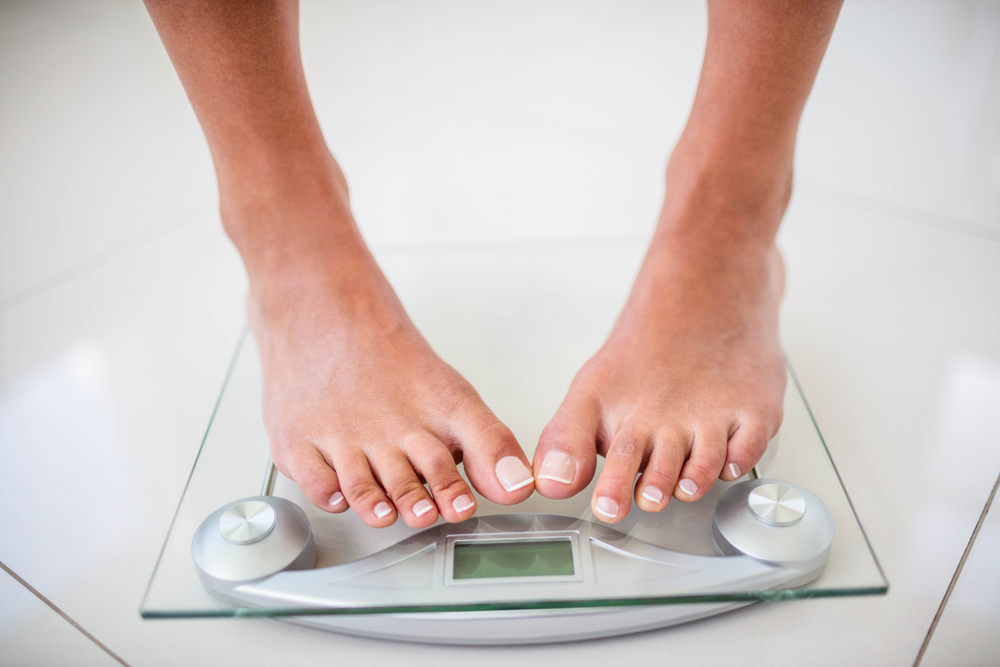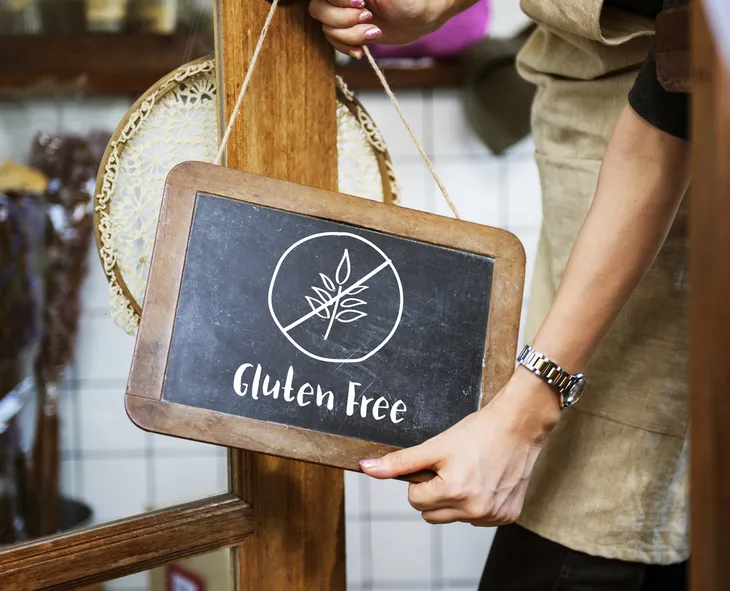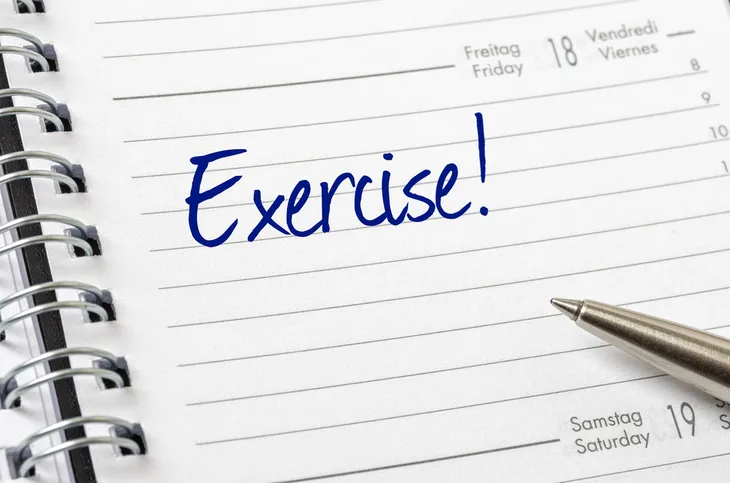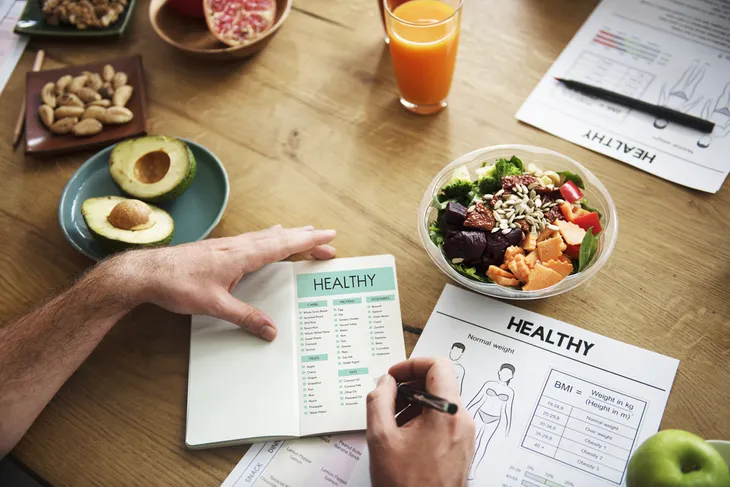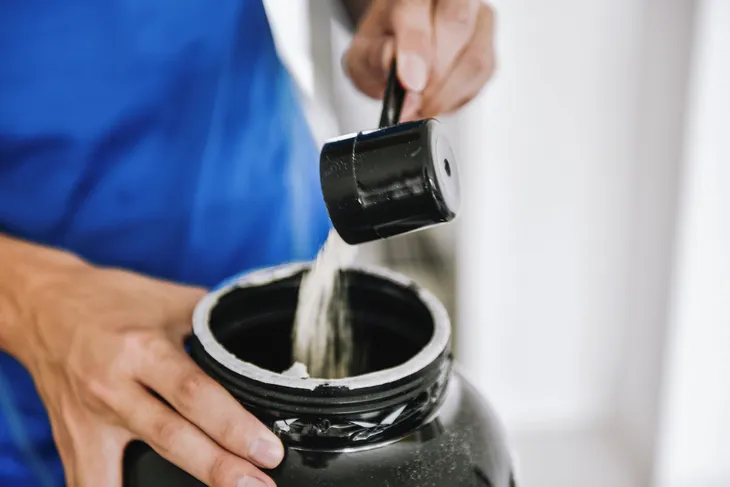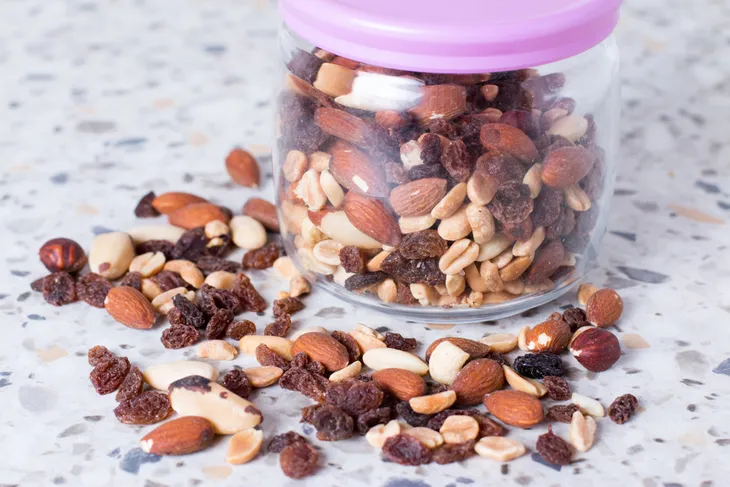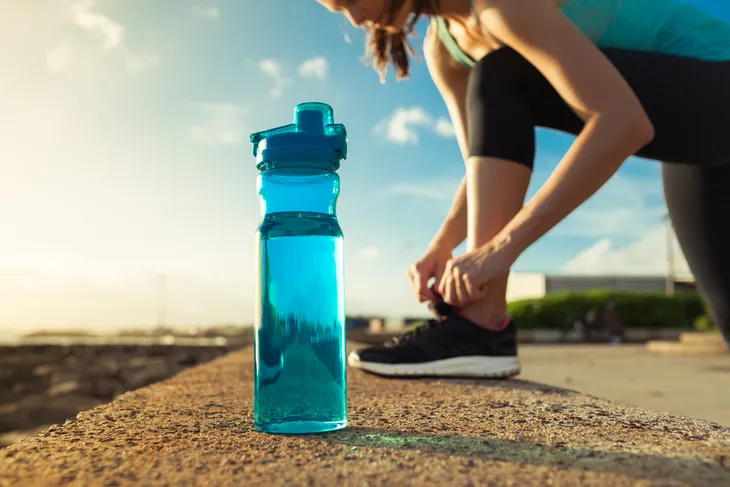With so much misinformation and controversy in the world of nutrition and weight loss it can be hard to decide what diet advice you should be following. Sometimes rules can be old and outdated as advancements and discoveries in health and nutritional science are changing almost every day.
The one-size-fits-all approach to diet and nutritional advice is flawed because everyone is different and every body responds differently when it comes to losing weight. My personal approach has always been to follow a healthy diet and exercise regularly and the weight loss will eventually follow, but for those who like to choose a more structured approach to dieting, here are 10 weight loss rules that you may want to rethink…
Keep Meals Small
You’ve probably heard the old rule that you should eat small meals more frequently. The theory is that this will prevent your stomach from stretching due to eating large meals and will keep you from feeling hungry in between meals (which can lead to binging). More important than meal size and frequency is the quality of the food you’re eating and the overall amount you consume over the course of the day.
Everyone is different, which is why some people are fine with the typical three square meals a day, while others prefer 5 or 6 meals spread out throughout the day. There’s no scientific evidence to suggest one way of eating is better than the other as long as the overall calories and nutrients are the same. However, other factors should be considered to determine if it’s best to eat small, more frequent meals.
Diet and Exercise are Everything
One of the basic fundamental rules of weight loss has always been calories out must exceed calories in, meaning diet and exercise are everything. I’m not saying that this isn’t scientifically sound, but it ignores several other factors. Most importantly, it ignores the large portion of the day we spend asleep. Yes, how well you sleep can actually have an impact on your weight loss journey.
A good night’s rest is so important and not getting adequate sleep can result in a decreased metabolism, which decreases the overall amount of calories you burn and can also result in increased appetite. A study by Wake Forest University in North Carolina showed that both getting too little, and too much sleep can cause an increase in abdominal fat (just the area we don’t want to see). Those who slept 5 hours or less showed 2.5 times as much visceral fat as those who got 7- to 8-hours a night.
Don’t Eat This, Don’t Eat That
It seems that so many of the diet and nutrition trends these days focus around everything you shouldn’t eat rather than what you should. Don’t eat wheat, carbs, gluten, fat, sugar, meat, etcetera…etcetera. This kind of food villain approach can have successful results in the short term, but deprivation isn’t the key to long-term healthy diet success.
Not only is it not enjoyable to cut certain foods from your life altogether, but it’s also unrealistic. It places a certain amount of pressure that can cause stress and negativity if you slip up along the way. Cut yourself some slack, instead of focusing on everything you mustn’t touch, work on improving your food related habits. Choosing better foods, slowing down eating and stopping when you’re full can go a long way towards achieving personal goals.
Put in the Exercise Hours
There seems to be this common belief that you have to spend all your time at the gym in order to get the results you want. A study conducted by researchers at Denmark’s University of Copenhagen found that there is an ideal amount of exercise when it comes to achieving results and there is such a thing as working out too much.
It found that 30 minutes of exercise per day can be just as effective in terms of fat loss as a 60 minute workout. Those who worked out for the shorter time period in the study also did not feel the need to replace the calories lost during the 30 minutes whereas those who worked out for 60 minutes felt drained, which prompted the body’s response to need to replenish energy stores.
Food is Fuel
Many diets seem to suggest that food should be fuel or sustenance and not much more. It certainly shouldn’t be something that’s enjoyed if you’re looking to maintain a healthy diet and achieve weight loss goals. This kind of attitude, however, couldn’t be more counter-productive. As it turns out, slowing down and enjoying your food is one of the best ways to actually lose weight.
Many studies have shown that speeding through your meals without taking the time to savour what you’re eating causes you to eat more which in turn, causes weight gain. Studies by The American Journal of Clinical Nutrition have shown that those who eat slower and chew their food more, eat less calories overall which can assist with portion control and weight loss.
Supplements are Subpar
I’m personally of the mindset that getting your essential nutrients from whole food sources is always the best option, but that doesn’t mean the supplements don’t have their place in a healthy lifestyle. With so much hype around supplements that claim to do everything from boost your metabolism to virtually melt the fat right off your body, the key to supplementing successfully is knowing which ones are worth your time.
Generally speaking, anything that makes such bold weight loss claims is probably a waste of your money (which could be better spent on delicious, nutritious food), but supplements for some essential nutrients that are hard to get enough of can be a good thing. Fish oils, for example, provide essential Omega 3 fatty acids that fight against cortisol, the stress hormone that causes the body to store excess fat.
Joining a Gym is Key
Many people argue that joining a gym is the best way to start an exercise regime that will lead to weight loss, but if you’re like me, getting to the gym on a consistent basis can be a struggle. What sounds easier to you: packing a bag, driving to the gym and working out for 60 minutes (or 30 if you’re on board with myth number 4) then showering and driving home, or putting in 30 or 45 minutes of exercise right in your own home?
A simple bodyweight circuit can be completed at home without any expensive tools or equipment, plus you can play your own music as loud as you want (keeping neighbors in mind of course). Your body won’t tell the difference between a push up done in a gym versus one you do right in your living room.
Only Use Protein Powder if You’re Building Muscle
I know that one walk into most protein and supplement retailers is probably enough to make this diet myth seem like reality. After all, the people selling them are usually rippled with muscles themselves, but contrary to popular belief, those big tubs of protein powder are not just for people looking to pack on muscle.
Protein is an important part of any diet plan because it helps satisfy and keep you fuller for longer. Protein powder is also an easy option that works for everyone because it comes in animal (whey), and vegetable (hemp, pea, rice) forms. Making a morning smoothie with fresh fruits and protein powder is a great way to start the day and a healthy habit that can assist with weight loss.
It’s Good to Snack Frequently
Don’t worry, I’m not about to tell you that snacking is bad. In fact, snacks are great since they’re small, convenient, and help you get through the day without feeling those pangs of hunger. The only problem is the size of snacks has almost doubled in the last 20 years or so and now, nearly 25 percent of our daily calories are coming just from snacks alone.
This is why it’s important to snack smarter. Consider what you’re choosing for a snack and take the time to learn about proper portion sizes so you don’t over eat just by snacking alone. For example trail mix is great because nuts give us healthy fats and protein and dried fruit can satisfy sweet cravings, but a healthy portion size is only about a quarter cup.
Drink All the Liquids
It is true that dehydration is one of the biggest hindrances to weight loss. When you don’t drink enough, the hypothalamus (the part of the brain which regulates thirst and hunger) gets confused, says Health.com. Wires get crossed in the brain which causes you to feel hungry and reach for food when it’s really water that you need. Proper hydration is important for weight loss success but that doesn’t mean that any old liquid will do.
If you’re serious about losing weight, look no further than good old H2O. Calorie-laden beverages be a huge roadblock when it comes to losing weight, and even those who are eating a healthy diet otherwise, may find they’re still having problems achieving goals with blended coffee drinks, sugary sodas and juices in their lives. If you really want to make an impact on weight loss and stay hydrated remember to make water your best friend.
